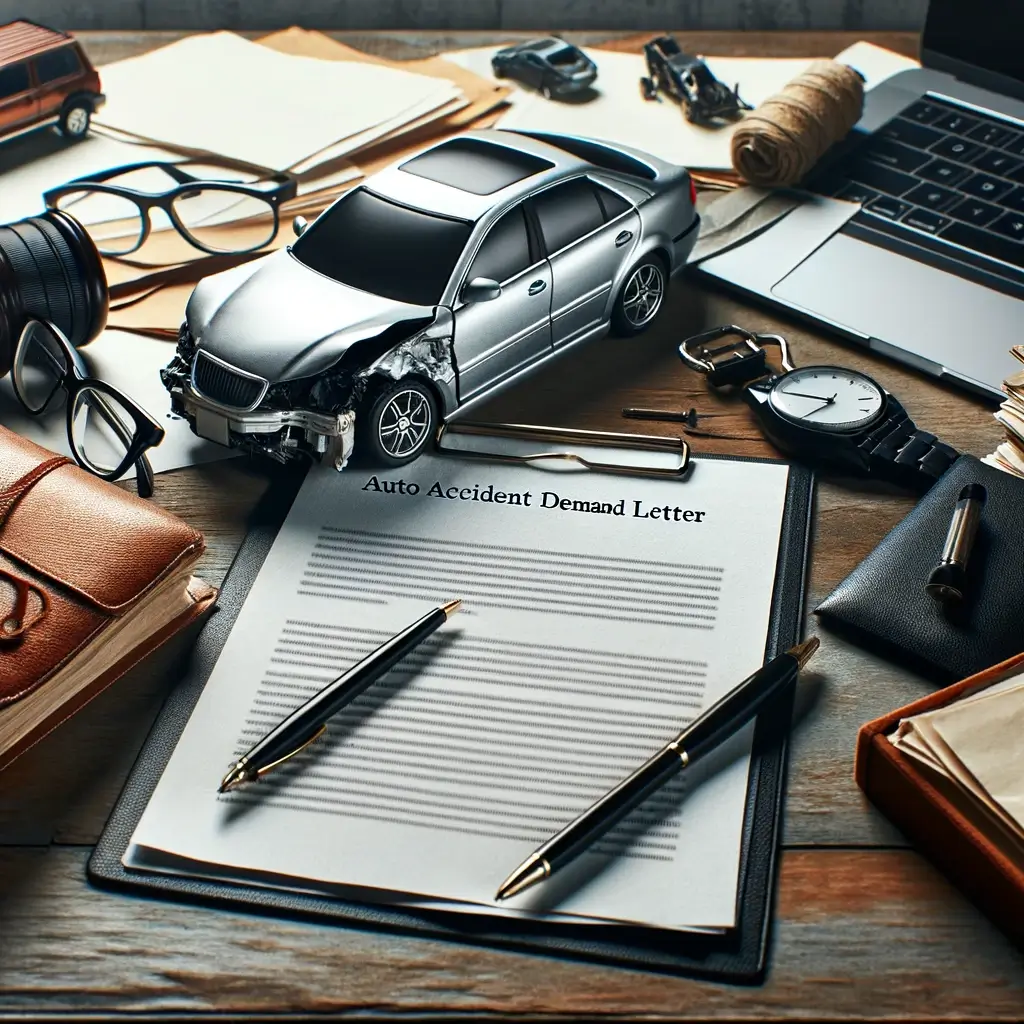The journey from a terrible incident on the road to settlement has many challenges. Nonetheless, the power of a well-crafted auto accident demand letter can be your beacon of hope.
Imagine having a secret weapon that significantly boosts your chances. Compelling evidence can persuade even the most skeptical insurance adjusters.
Discover how to leverage your evidence into a convincing narrative that commands attention. Dive into our guide and ask for legal help today!
Demand Letter Basics
A demand letter communicates the details of the incident, your injuries, and the damages you seek to the insurance company. It signals your readiness to negotiate and accept fair compensation.
This step is more than procedural. It lays the groundwork for a successful resolution. A meticulous letter, bolstered by persuasive evidence, can sway the outcome in your favor.
The Foundation of Your Claim: Collecting Evidence
Effective evidence collection ensures clarity and leaves no room for doubt. Your evidence speaks volumes, signaling your readiness to defend your claim and advocate for rightful payments.
Police and Accident Reports
These documents offer an unbiased third-party perspective on the events that unfolded. Accordingly, it is the foundational narrative for your claim. They detail the conditions, the parties involved, and who was at fault. In the eyes of an insurance adjuster, these reports lend a layer of authority and legitimacy.
Eyewitness Accounts
Witness statements hold significant weight, providing additional angles of the events. These narratives bridge any informational voids, explain specifics, and infuse a human touch into the narrative.
Photos of the Accident Scene, Damages, and Injuries
The adage “a picture speaks louder than words” applies now more than ever. Images showing damage to your vehicle and injuries are undeniable visual proof of the repercussions. By presenting these images, you communicate directly with the adjuster, sidestepping the need for elaborate explanations.
Medical Documentation and Expense Receipts
Recovery can be a difficult journey marked by hurdles and setbacks. These records are essential, offering a comprehensive overview of your injuries, the necessary treatments, and the financial strain. They serve as concrete evidence, highlighting the urgent need for a fair settlement.
Records of Lost Wages and Other Financial Losses
In addition to the immediate physical and emotional strain, an auto accident can profoundly affect your financial well-being.
Detailed records of lost income and other financial ramifications illustrate the broader consequences of the incident. These documents quantify the expenses and shed light on intangible losses such as missed opportunities.
Strategic Evidence
Organization
How you arrange your evidence plays a pivotal role in this narrative journey. Imagine your evidence as chapters in a book where each builds upon the last.
Organizing evidence to mirror the accident’s timeline allows the adjuster to walk in your shoes. This presentation not only aids in understanding but also empathy.
Quantifying Damages
You or your car accident lawyer must organize the chaos into hard figures. Here, the evidence serves a dual purpose: validating the extent of your losses and justifying the compensation you seek. Through bills, receipts, and records, each number in your letter shows the financial toll of the accident.
Establishing Liability
Police reports, photographs, and eyewitness statements can place responsibility squarely on the other party. Regardless, there is more to this piece than casting blame. It’s a delicate balance of presenting facts in a way that leaves no room for doubt.
Personal Impact Narratives
You can invite the adjuster to look beyond the facts and figures. This section is where your story gains depth, colored by personal accounts, diary entries, or video logs.
Expert Opinions
Expert opinions in your letter lend an authoritative voice to your claims. For example, you could have a doctor explain the prognosis of your injuries. Alternatively, you could ask a mechanic to detail the damages to your vehicle.
Common Evidence Pitfalls to Avoid
One significant misstep is overlooking minor details that could fortify your claim. It’s easy to focus on the substantial elements while dismissing the smaller, yet often poignant, pieces of evidence.
Every detail contributes to the larger narrative of your experience. For instance, a seemingly inconsequential photo might capture a detail that proves critical in establishing liability.
Another common pitfall is failing to link your evidence to the claims in your letter. A mountain of details without demonstrating how each piece supports your narrative does not do much. Each document, photo, and statement should serve a purpose.
Talk to an Attorney About Your Auto Accident Demand Letter
From organizing your evidence to personalizing your narrative, each step strengthens your position. But navigating these waters alone can be daunting, even with a carefully prepared car accident demand letter. A legal professional can refine your evidence strategy and lend a critical eye.
Complete this online form or call (866) 345-6784 for a referral to local legal help today!

